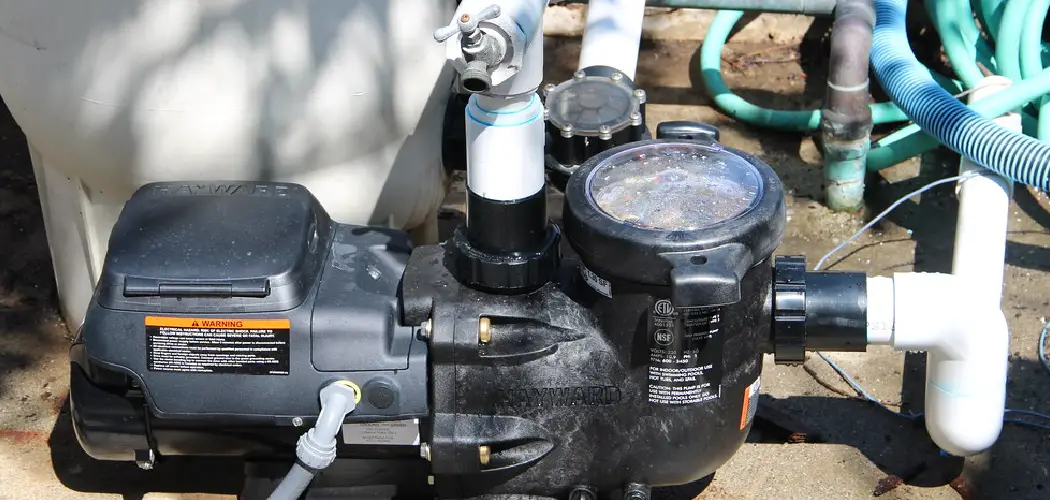Bleeding air from your pool pump is an important maintenance task that should be done regularly. Air bubbles in the pool pump can reduce water flow and circulation, which can lead to a host of issues such as poor water quality, algae growth, and even damage to the pump itself. By learning to bleed air from pool pump, you can keep your pool running smoothly and avoid costly problems down the line.
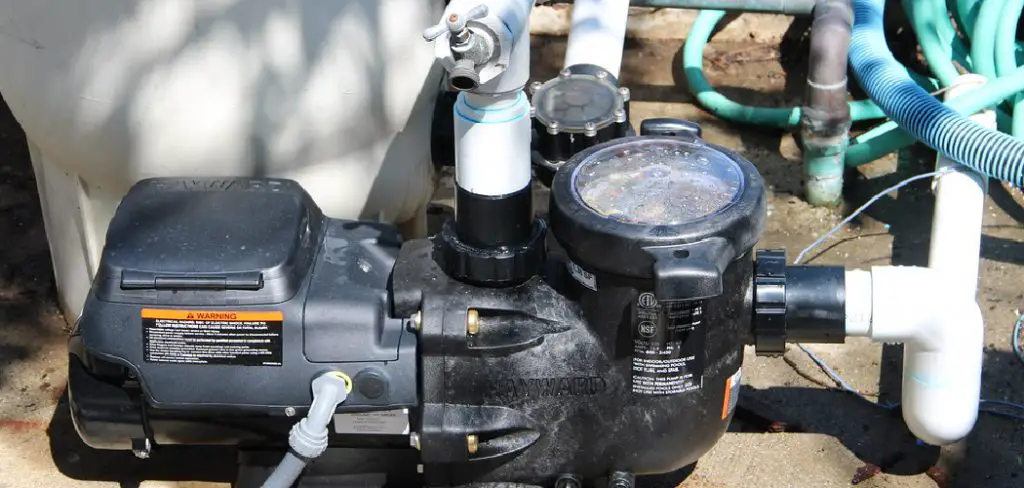
The main advantage of knowing to bleed air from pool pump is that it helps to maintain the efficiency and longevity of your pool pump. When air gets trapped in the pump, it can cause it to work harder than necessary, leading to increased wear and tear on the motor and other components. Read this blog post to learn how to bleed air from pool pump.
Step-by-step Instructions for How to Bleed Air From Pool Pump
Step 1: Inspect the Pool Pump
Before you can start bleeding the pool pump, it is important to inspect the pump and its parts. Make sure that all valves and connections are closed and tight. Also, check for any cracks or leaks in the pump. This will ensure that the pump is in good condition and ready to be bled.
Step 2: Turn off the Pool Pump
Before beginning any maintenance on your pool pump, it is crucial to turn off the power. Locate the circuit breaker for the pool pump and switch it off. This step is important for your safety as well as preventing any damage to the pump. Next, you will need to locate the air bleed valve on your pool pump. This valve is usually located at the top of the filter tank. It may also be labeled as an “air release” or “bleeder” valve.
Step 3: Prepare for Air Bleeding
To prepare for the air bleeding process, you will need a bucket or towel to catch any water that may come out of the valve. It is also helpful to have someone assist you during this process. Using a wrench or pliers, slowly turn the air bleed valve counterclockwise to open it. Be cautious as water may begin to spray out of the valve.
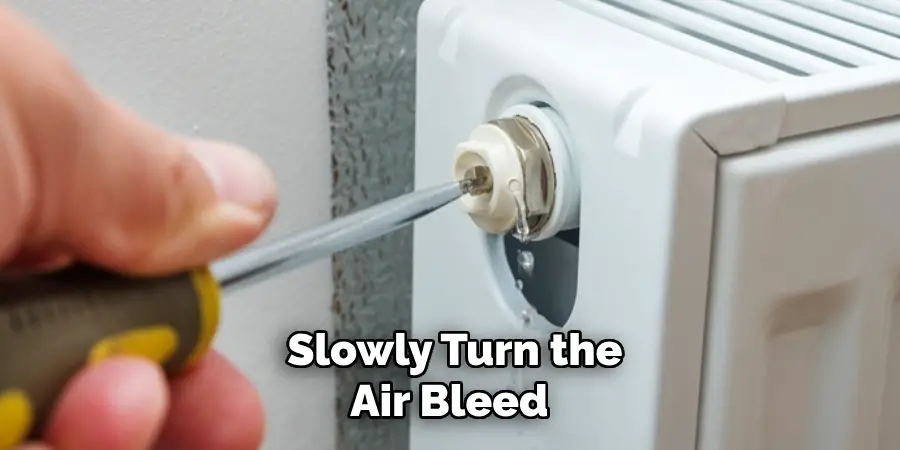
Step 4: Release the Air
Once the valve is fully open, you will hear a hissing sound as air begins to escape from the pump. Let all of the air escape until only water flows out of the valve. This may take a few minutes to achieve. Once all of the air has been released, use your wrench or pliers to slowly turn the valve clockwise to close it. Make sure it is tightly closed to prevent any air from entering back into the pump.
Step 5: Turn On the Pool Pump
Now that the air has been bled from the pump, you can turn the power back on. Make sure to wait a few minutes before turning on the pump to allow it to fully prime. After turning on the pump, check for any leaks around the pump and its connections. If you notice any leaks, turn off the pump and tighten or repair as needed.
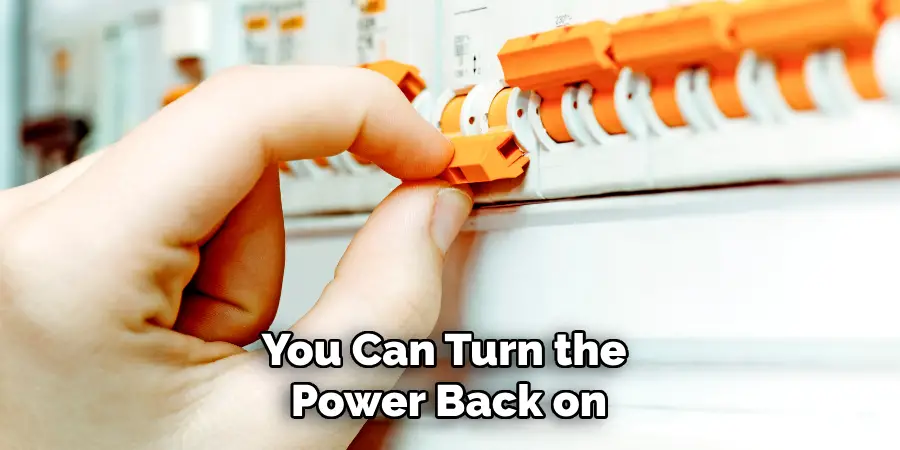
Step 6: Repeat if Needed
If there is still air in the pool pump, repeat the process until all of the air has been bled out. To prevent air from building up in the pool pump, it is important to regularly maintain the pump and its parts. This includes checking for leaks, cleaning the filter, and ensuring all valves are closed tightly.
Step 7: Seek Professional Help
If you are unable to bleed the air from your pool pump or notice any significant issues, it may be best to seek professional help. A pool technician can properly diagnose and fix any problems with your pool pump.
By following these simple steps, you can ensure that your pool pump is performing at its best. Remember to always put safety first and seek professional help if needed.
Safety Precautions for How to Bleed Air From Pool Pump
- Always turn off the power before attempting to bleed the air from your pool pump. This will prevent any electrical accidents and ensure your safety.
- Use tools, such as pliers or wrenches, to open and close the air bleed valve. Do not try to do it with your bare hands as you may risk getting injured by hot water or steam.
- Have someone assist you during the air bleeding process. They can help hold a bucket or towel to catch any water that may come out of the valve and also watch for any leaks.
- Wear protective gear, such as gloves and eyewear, when handling the pool pump to prevent any injuries.
- Regularly inspect your pool pump and its parts for any cracks or leaks. This will prevent any bigger issues in the future.
- Keep children and pets away from the pool area while performing maintenance on the pool pump.
- If you are unsure of how to bleed the air from your pool pump or notice any significant issues, it is best to seek professional help to avoid further damage and ensure proper maintenance.
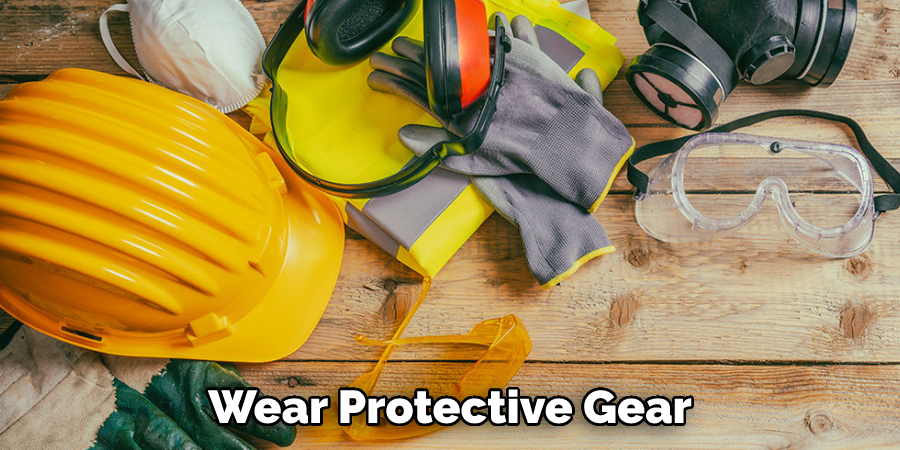
So, these were some important safety precautions for Bleeding Air From Pool Pump. It is always better to be cautious and practice safety measures while performing any maintenance on your pool pump.
Why is It Important to Bleed Air From a Pool Pump?
Bleeding air from a pool pump is an essential maintenance step that every pool owner should know how to do. It involves removing any trapped air in the system, which can cause significant issues if left unchecked. In this section, we will discuss why it is crucial to bleed air from a pool pump and the potential consequences of not doing so.
1. Prevent Damage to Your Pool Pump
One of the main reasons why it is important to bleed air from a pool pump is to prevent damage to the pump itself. When air gets trapped in the system, it can create air pockets that block water flow and put extra strain on the pump motor. This added strain can cause the pump to overheat, leading to potential damage or even failure. By regularly bleeding air from your pool pump, you are ensuring that it can function at its optimal level without any unnecessary stress.
2. Ensure Proper Water Circulation
Air pockets in the pool pump can also affect the circulation of water throughout your pool. Without proper water flow, debris and bacteria can accumulate in stagnant areas, leading to a dirty and potentially unsafe swimming environment. Bleeding air from the pool pump allows for smooth water circulation, ensuring that your pool stays clean and healthy for swimming.
3. Prevent Pump Cavitation
Another consequence of not bleeding air from a pool pump is the potential for pump cavitation. This occurs when the air pockets in the system cause water to boil and create low-pressure bubbles that can damage the impeller and other internal components. Over time, this can result in reduced pump performance and costly repairs. Regularly bleeding air from your pool pump prevents this issue and keeps your equipment running smoothly.
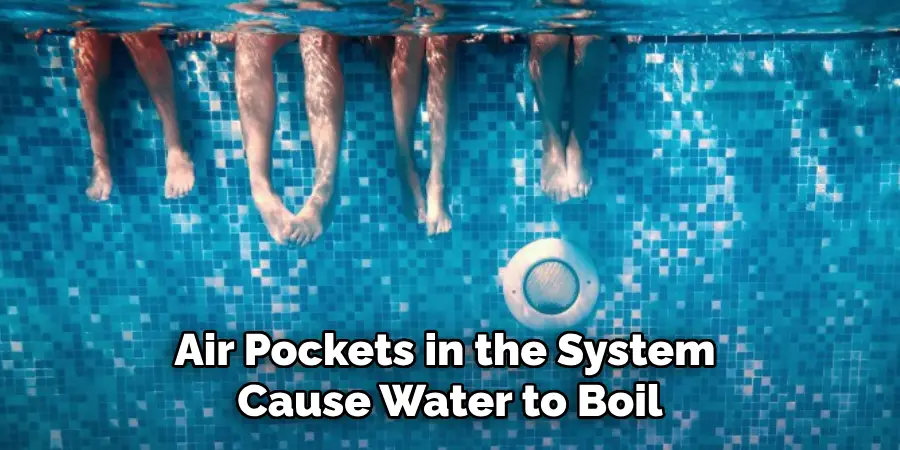
How Do You Prevent Air From Getting Into Your Pool Pump in the First Place?
If you have a pool, you know that air can be a major headache when it comes to maintaining your pool pump. Air in the system can cause loss of prime and decreased efficiency, leading to higher energy bills and costly repairs.
Luckily, there are ways to prevent air from getting into your pool pump in the first place. First and foremost, it is important to properly maintain your pool equipment. Make sure to regularly clean out your skimmer baskets, as clogged baskets can cause air to be drawn into the system.
It’s also important to keep an eye on any valves or fittings that may be loose or damaged. Any leaks in these areas can allow air to enter the system. Regularly checking for and repairing these types of issues can greatly reduce the chances of air getting into your pool pump.
Another way to prevent air from entering your pool pump is to make sure the water level in your pool is high enough. If the water level drops too low, it can cause air to be drawn into the system through the skimmer. Keep an eye on your pool’s water level and top off as needed to avoid this issue.
Maintenance Tips After Bleeding Air From Your Pool Pump
Once you have successfully bled the air from your pool pump, it’s important to maintain it properly to prevent future issues. Here are some tips for maintaining your pool pump after bleeding out the air:
- Check and clean your skimmer baskets regularly to prevent clogs.
- Inspect and tighten any valves or fittings that may be loose or damaged.
- Keep your pool’s water level high enough to prevent air from entering through the skimmer.
- Regularly check and clean the pump strainer basket.
- Check and clean the pump impeller for any debris.
- Keep an eye on your pool’s water chemistry and make necessary adjustments to keep it balanced, as imbalanced water can cause air to be sucked into the system.
- Schedule regular professional maintenance for your pool equipment to catch any potential issues early on.
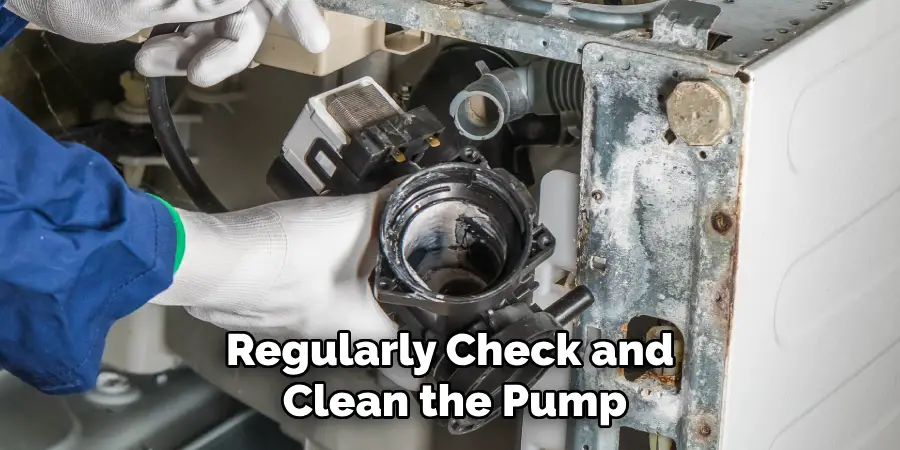
By following these maintenance tips, you can prevent air from getting into your pool pump and keep it running smoothly for years to come. Remember, prevention is key when it comes to avoiding the hassle of bleeding air from your pool pump. Overall, maintaining good upkeep of your pool equipment and regularly checking for any issues can go a long way in preventing air from entering your pool pump and keeping it functioning efficiently.
Conclusion
In conclusion, properly maintaining your pool pump can save you time, money, and headaches in the long run. One crucial aspect of maintaining your pool pump is regularly bleeding air from it. You may think this task is too complicated or technical for you to handle on your own, but with the right knowledge and tools, it’s a simple process that anyone can do.
Plus, taking care of your pool pump will ensure that it continues to run efficiently and prolong its lifespan. I hope this article has been beneficial for learning how to bleed air from pool pump. Make Sure the precautionary measures are followed chronologically.

